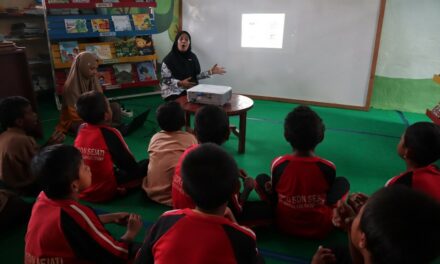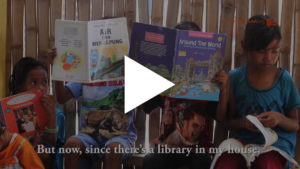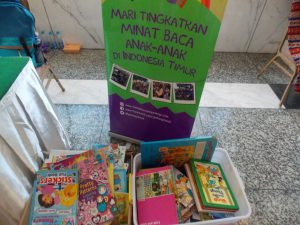Child-friendly libraries are libraries used by all children in school, regardless of their reading abilities or classes. One of the things most emphasized to teachers, principals, and librarians are the importance of giving equal opportunities to all students to borrow books.
Unfortunately, until now, there are still many who believe that there is no need to lend books to students who have not read fluently on the grounds that “this child will not read the book, only look at pictures”, “later, the book will be torn”, “later the book will be lost because they can’t keep a book outside the school “, and other reasons, which are mainly worries.
However, there are also some parties who put aside all these fears and remain optimistic to encourage students who have not read fluently to borrow books in the library. In fact, the schools assisted by Rainbow Reading Gardens, which lend books to all students, do not experience significant loss of books.
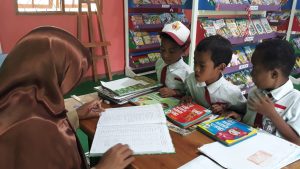
It feels unfair if the students in the school don’t get their rights to borrow books at the library just because they are not able to read fluently. Does bringing books home reduce children’s reading skills? If the child forgets where to put the borrowed book, is it a child’s fault?
In my opinion, this is all in the control of the adults around the student. What can adults do to help children read fluently, borrow books according to the rules, and maintain books?
One thing that can be done to help children enjoy books is to read books interestingly.
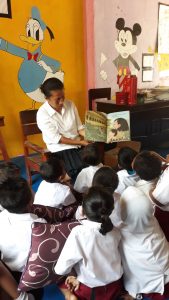
During the support visit to schools, the Rainbow Reading Gardens team often witness the children run to the bookshelves to read the book that had just been read. Even those who have not read fluently do not hesitate to take books and start “reading”, even though what is said is often different from what is written in the book. If this happens, can children who have not read fluently enjoy the book? 🙂
Another concern that arises is the loss of books because children are not careful about keeping books. When going to school, children not only carry their bodies, but also some items for school. If children can carry these items well, why should they be prohibited from bringing library books home? In fact, in the project schools, the missing books are only 5 or less even after 1 year.
Above all these concerns, there is an awareness that must be developed, namely the reading habit. Rainbow Reading Gardens always suggest the importance of developing reading habits rather than maintaining fear and worries, which are not necessarily proven.


![Taman Bacaan Pelangi [Rainbow Reading Gardens]](/wp-content/uploads/2016/07/logo_taman_bacaan_pelangi_rainbow_reading_gardens_bilingual_d.png)



